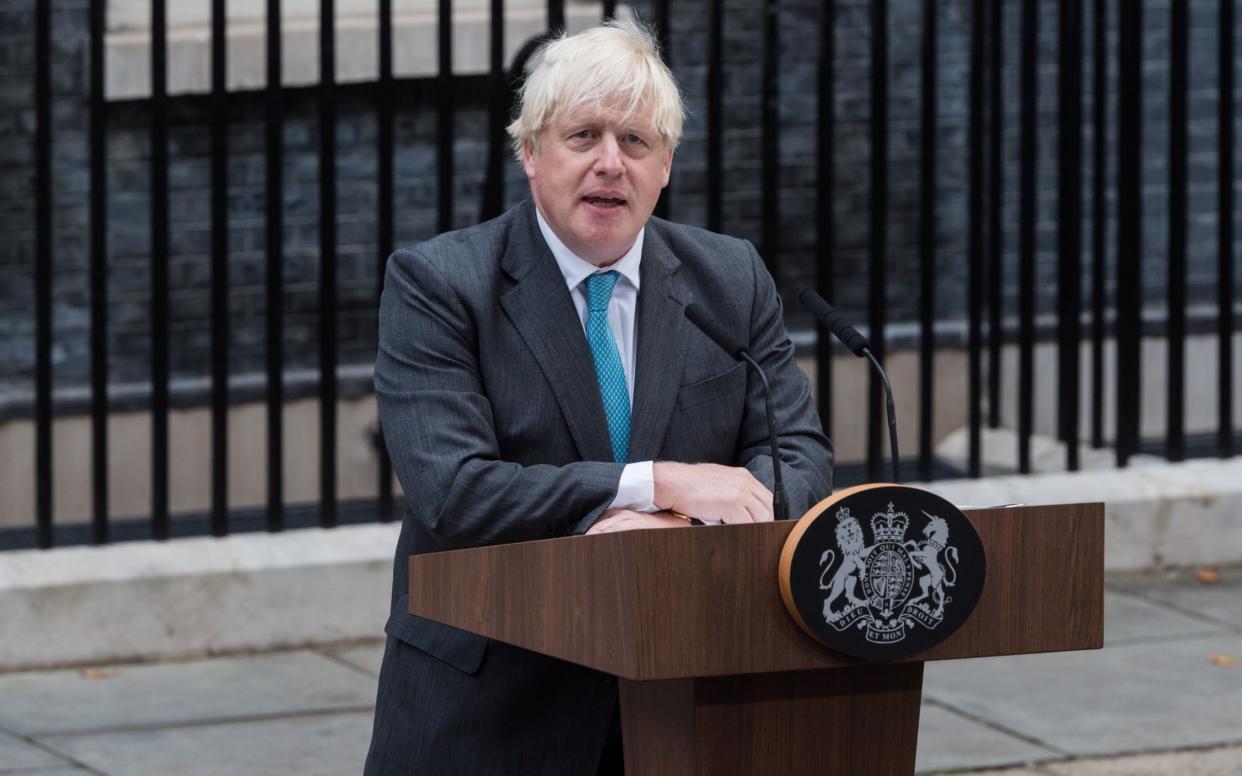Boris Johnson allies given stark warning over criticism of partygate inquiry

Boris Johnson’s allies have been warned that they may face contempt of Parliament charges if they continue to criticise its investigation into whether the former prime minister misled MPs over partygate.
The privileges committee has fired a shot across the bows of the former prime minister’s supporters, who have attacked its inquiry as being “rigged” and a “witch hunt”.
In a report published on Monday, it rejected accusations of bias against Mr Johnson and said its members had been subjected to an “unacceptable” campaign of personal attacks.
The cross-party group of MPs is investigating allegations that Mr Johnson deliberately misled the Commons when he said there were no lockdown parties in Downing Street.
The committee could recommend a 10-day suspension from Parliament if it deems that the former prime minister deliberately misled MPs.
If that punishment was approved by Parliament in a vote, it would trigger an automatic recall petition in his Uxbridge and Ruislip constituency.
‘Kangaroo court’
Mr Johnson's allies claim that the burden of proof required to find Mr Johnson guilty has been watered down, which has turned the inquiry into a “kangaroo court”.
The motion passed by Parliament, which sets the remit for the committee’s investigation, only asks if he “misled the House” and not whether doing so was “deliberate”.
MPs on the body have said they will nonetheless examine the former prime minister’s intentions and this “may become one of the key issues of the inquiry”.
Nadine Dorries, the former culture secretary, reacted by tweeting: “If this witch hunt continues, it will be the most egregious abuse of power witnessed in Westminster. It will cast serious doubt not only on the reputation of individual MPs sitting on the committee but on the processes of Parliament and democracy itself.”
Lord Goldsmith, another long-time ally of the ex-prime minister, said that the investigation was “clearly rigged” and “an obscene abuse of power”.
“It is a jury comprised of highly partisan, vengeful and vindictive MPs, nearly all of whom are already on the record viciously attacking the person they are judging,” he said.
The privileges committee has responded by warning them that such criticism could fall foul of parliamentary rules and result in further investigations.
Separately, a review has concluded that London city hall's code of conduct must be strengthened in response to the controversy over Mr Johnson's links to Jennifer Arcuri.
Members of the Greater London Assembly should be told to declare non-pecuniary interests such as personal relationships with individuals in future, a cross-party panel recommended.
Ms Arcuri's links with the former prime minister came under public scrutiny over allegations she received favourable treatment for her business ventures during his eight-year stint as mayor. Mr Johnson has denied wrongdoing.
‘Groundless criticism and comment’
“The committee’s work, and by implication the House as a whole, has been subject to much groundless criticism and comment, extending to personal attacks from some quarters on members of the committee,” it said.
“Such a campaign is unprecedented and should be regarded as unacceptable. In some instances these attacks constitute a potential contempt of Parliament because they appear to be designed to impede the functioning of the House.”
The warning came in a report from the committee rejecting legal advice, commissioned on behalf of Mr Johnson by the Cabinet Office, which criticised the structure of its investigation.
Lord Pannick KC wrote a damning paper arguing that the approach to the inquiry was “fundamentally flawed” and “wrong in principle”.
He said MPs are “proposing to adopt an unfair procedure” by failing to allow Mr Johnson to have legal representation and by allowing evidence from anonymous witnesses, warning that this could have a “chilling effect” and make ministers much more wary about giving statements to Parliament.
In its response, the committee said it had consulted Sir Ernest Ryder, its legal adviser and a former Lord Justice of Appeal, and the Commons clerks.
“We reject Lord Pannick’s criticisms. The view of our impartial legal advisers and Clerks, which we accept, is that his opinion is founded on a systemic misunderstanding of the parliamentary process and misplaced analogies with the criminal law,” it said.
On the suggestions of a chilling effect on democracy arising from the investigation, it added: “We consider this concern to be wholly misplaced and itself misleading.”
‘No rules have been changed at any point’
But the committee did hint at an effective climbdown over its controversial plans to allow witnesses to testify anonymously against Mr Johnson.
“We have not yet identified any credible evidence where a witness wishes to have their identity withheld from Mr Johnson, and it may be that this situation does not arise,” it said.
“In the exceptional circumstance that the public interest makes such a step necessary, we will publish proposals for a fair process and Mr Johnson will be invited to comment.”
The committee is chaired by Harriet Harman, a Labour MP, who has denied suggestions that MPs have moved the goalposts to try and bring down the former prime minister.
“No rules or terms of reference have been changed at any point, and the Committee is carrying out this inquiry as instructed by the House,” she wrote in a joint article with fellow member Sir Bernard Jenkyn, a Tory MP.

 Yahoo Movies
Yahoo Movies 
